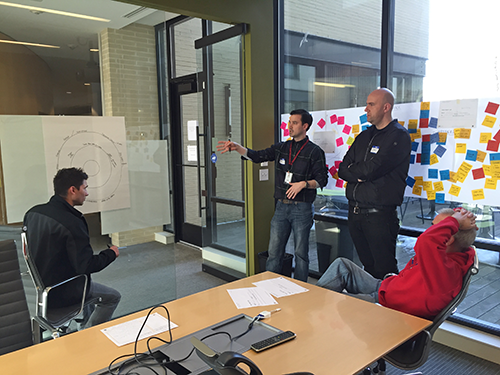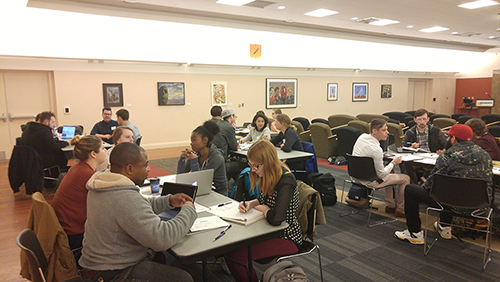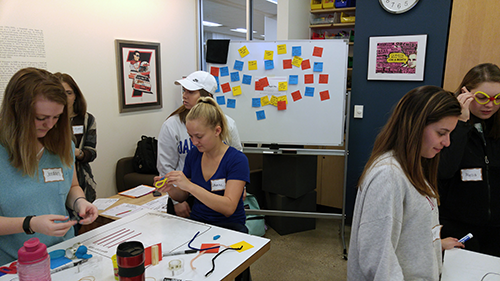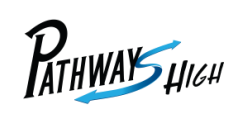Pathways High and Lubar Entrepreneurship Center at the University of Wisconsin-Milwaukee (UWM) will partner to facilitate a series of Pop Ups on Entrepreneurial Thinking in the Pathways High IMPACT program. The objective of these Pop Ups is to expose students to creative and entrepreneurial mindsets while complimenting the IMPACT curriculum. Students will be encouraged to follow their curiosity and lead their learning by doing hands-on “experiments” in an open and safe environment. The proposed workshops offer experiential learning opportunities that will expose students to various tools that can be used at Pathways High and beyond classroom walls.
ENGAGING STUDENTS THROUGH POP UPS
Pop Up #1: Ideation – creative brainstorming and opportunity finding focused on a certain customer archetypes.
Pop Up #2: Business Model Canvas – the framework to help think through preliminary business concepts and assumptions.
Pop Up #3: Customer Discovery – a process of testing assumptions and hypotheses through learning from customers.
Pop Up #4: Product Development – prototyping a minimal viable product (a solution) that aligns with discoveries learned through customer discovery.
Pop Up #5: Finance – develop a financial model to understand the key drivers of the startup idea so when moving forward risks can be managed.
Pop Up #6: Pitching – communicating an innovative business product or a concept in an effective way by leveraging storytelling techniques.


A COHESIVE WORKBOOK THAT COINCIDES WITH CONTENT
The Lubar Entrepreneurship Center will provide a copyrighted workbook that will assist students through the seven-week Entrepreneurial Thinking IMPACT Program. The Pop Up structure will consist of large group examples and follow up activities for students to apply the learning to their startup idea. Students will use these exercises to strengthen their knowledge of the content as well as provide Pathways teaching team a way to see student progress throughout the IMPACT Entrepreneurial Thinking Program.
PROGRAM ELEMENTS BUILT ON BEST PRACTICES
As an active participant and contributor to the National Innovation Network (NIN), a grantee/participant of the NSF-funded National Center for Engineering Pathways to Innovation (Epicenter) at Stanford University and partner with VentureWell, UWM has developed programming informed by the state-of-the-art practices and educational research. Two examples of these core programming elements include:
- Design Thinking – a structured user-centered approach to problem-solving through deep exploration of the problem space, and quick prototyping and testing in the solution space; and
- Lean Startup – a hypothesis-driven approach to developing a business model through gaining insights from customers, reflecting and adapting the model using business model canvas.
UWM will tailor these core programming elements for the Pathways IMPACT Program.

